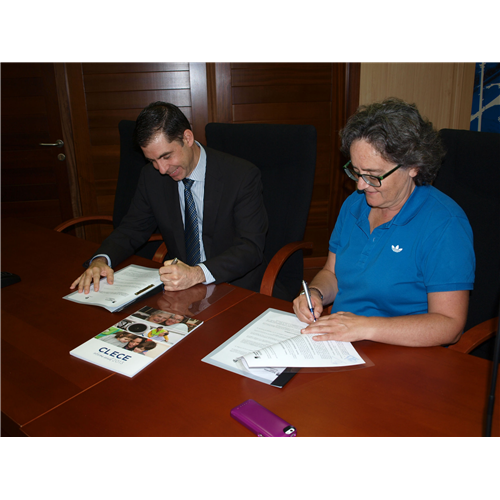
Adeje town council and Clece join forces to help people from social groups that struggle to find work improve their job prospects
- Agreement signed to help people with disabilities, victims of gender-based violence and people facing social exclusion find work
Madrid, November 2014. The Local Development and Employment Policies department of Adeje town council in Tenerife is collaborating with Clece to help people who struggle to find work improve their chances of securing employment. That was the announcement made during the signing of an agreement to promote the integration of people with disabilities, people who have suffered gender-based violence and people facing social exclusion.
With this agreement, which has an initial duration of 12 months, both partners are committed to reporting on and providing the necessary resources to ensure the agreement can be properly implemented. The shared goal is to help people from the aforementioned social groups find work, by helping candidates be put forward for different recruitment processes and possibly find work, depending on the particular job offers announced by Clece.
Ermitas Moreira García, the Adeje town councillor in charge of employment, said that “the town council will provide whatever material means are needed” and explained that “the agreement is one of various employment initiatives in place with businesses and organisations”.
For Clece, this collaboration forms part of the company’s social commitment, one of the chief aims of which is to help people from socially vulnerable groups become more employable and find work. Braulio Hernández Lorenzo, from the Canary Islands Regional Division of Clece, explained: “Sustaining the business project and maintaining the upward trend for growth of the past few years is what ensures the continuity and increased reach of this commitment. In the Canaries last year we managed to increase our workforce by 21 per cent, to more than four thousand employees”.
